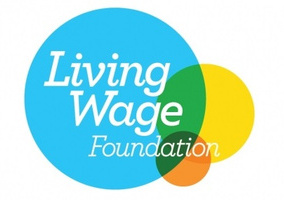Several large UK charities have reported spending millions more on staff salaries due to minimum wage rises introduced this month, and commissioners have been urged to cover their increased costs.
Mencap, Age UK and Sue Ryder have reported that their salaries have risen by £6.7m, £1.7m and £1m respectively after increasing staff pay following the legislation changes introduced on 1 April.
Social care charity Alternative Futures Group also recently announced it has increased pay for 1,800 frontline workers, amounting to a £4.6m investment.
But some charities and umbrella bodies said pay increases are not being covered by commissioners and urged public sector bodies to increase funding.
Rhidian Hughes, chief executive of the Voluntary Organisations Disability Group (VODG), said: “In some areas authorities are offering very low fee uplifts, and some none at all, which is directly restricting investment in services, the workforce and poses a significant risk to ongoing financial viability.”
Sarah Vibert, chief executive of NCVO, said: “It’s unacceptable that many commissioners aren’t even meeting the cost of the statutory minimum wage.
“We need to see charities’ grants and contracts uplifted so they can pay staff fairly for their expert skills, which benefit so many communities.”
Charities: ‘Varied uplifts for the year ahead’
Last week, the government increased the minimum legal pay rate for anyone aged 21 and over, now known as the national living wage (NLW), by 10% to £11.44 per hour.
Earlier this year, a government impact assessment estimated the rises could cost charities £200m over six years.
Mencap told Civil Society it has increased pay for its 5,206 support workers by more than 7.6%, which it said would cost the charity around £6.7m.
“While we hope that the annual uplifts in the funding we receive from local authorities and the NHS will cover this cost, we are concerned that it won’t be the full amount,” a spokesperson said.
“So far we have seen very varied uplifts for the year ahead, with some councils offering over 7%, and some offering nothing.
“We won’t know the final cost to Mencap until later into the financial year when those conversations have all been finalised.”
Sue Ryder said it has boosted salaries for 1,230 retail, healthcare and business support staff, which it said equates to an additional cost of around £1m.
Alan Bowers, chief operating officer at Sue Ryder, said the charity supports the minimum wage rises but has not been covered for its employees’ pay increases.
“For the majority of our palliative and end-of-life care services, we are yet to receive an uplift to our commissioned funding,” he said.
“However, it is unlikely that any future increase will match the increased costs we are facing due to the increase in National Living Wage.
“Sue Ryder currently only receives around one third of the money required to run our palliative and end-of-life care services. We will continue to highlight the critical importance of sustainable hospice funding to the government.”
Meanwhile, Age UK said it had increased pay by between nine and 10% for its 912 retail staff following the NLW increase, resulting in “an investment of circa £1.7m per annum”.
Umbrella bodies: ‘Ever-widening gap in fee uplifts’
Hughes of VODG said: “The increase in the national living wage is very welcome for valued care and support staff delivering essential services.
“We are very concerned about the ever-widening gap in the fee uplifts paid by public sector commissioners. In some areas authorities are offering very low fee uplifts, and some none at all, which is directly restricting investment in services, the workforce and poses a significant risk to ongoing financial viability.
“Third sector providers are doing all they can to reward the care workforce, as we saw recently with AFG increasing pay for its 1,800 frontline workers but the funding decisions being made by central government make service delivery increasingly challenging.”
Vibert of NCVO said: “Attracting and retaining skilled and committed staff is vital for charities and we know that many charities are struggling with this. Low pay and short-term contracts driven by lack of sustainable funding make recruitment particularly difficult in the charity sector.
“Our research into the true cost of delivering public services revealed that underfunded grants and contracts are making recruitment and retention of staff more difficult for 83% of charities. 45% of charities told us that they’re having to subsidise minimum wage salaries because their grants and contracts aren’t sufficient.
“It’s unacceptable that many commissioners aren’t even meeting the cost of the statutory minimum wage. We need to see charities’ grants and contracts uplifted so they can pay staff fairly for their expert skills, which benefit so many communities.”
Earlier this year, the Local Government Association warned that councils in England face a £4bn funding gap over the next two years, with many authorities expected to cut services.
In response to the spring budget, chair Shaun Davies said councils’ core spending power in 2024-25 had been cut by 23% in real terms compared to 2010-11.












